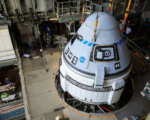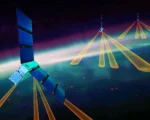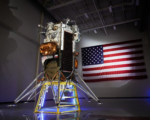In 2013, there were 26 reported school shootings in the U.S. By 2023, this number had risen dramatically to 82, highlighting a severe and growing issue with school safety in America. While the consensus acknowledges the problem, the debate over its causes and solutions has become intensely polarized in a deeply divided country. Proposed solutions range widely from stricter gun control and increased mental health support to physical security measures such as door locks and arming teachers.
The surge in school shootings has spawned a niche market of tech startups aiming to tackle the problem. Companies like ZeroEyes, which uses AI-driven imaging monitored by law enforcement, panic alert system Centegix, and scanner-maker Evolv Technology, among others, have emerged. However, studies from institutions like Johns Hopkins have raised doubts about the effectiveness of these technologies.
Enter Cover, a new startup founded by Brett Adcock, known for his work with Archer and Figure AI. Cover believes it has found a breakthrough solution. The core of Cover’s approach focuses on monitoring school entryways, akin to existing methods like metal detectors and scanners. What sets Cover apart is its underlying technology, exclusively licensed from NASA’s Jet Propulsion Laboratory (JPL). Headquartered in Pasadena, California, Cover has attracted talent from JPL, leveraging advanced technology developed for space exploration.
Adcock describes the technology as akin to TSA scanners found in airports, but significantly more powerful and accurate. “Our system is very similar to that, but it’s, like, 10x more powerful and accurate,” he explained. “So, we can basically do very long-distance scanning. Ten to 15 feet away, we can scan somebody, instead of having them sit here for a couple of seconds in line.”
Despite its promising capabilities, the technology faces significant hurdles, particularly concerning privacy. Similar to TSA scanners, which have drawn criticism for their invasive nature, Cover’s technology raises concerns about its ability to see beneath clothing. Privacy advocates have been vocal about such issues, prompting regulations like those requiring TSA scanners to incorporate privacy protections. These concerns are amplified in a school setting, where minors would be subjected to such scanning technology.
As Cover navigates the challenges ahead, including addressing privacy concerns and proving its efficacy in real-world settings, its mission underscores the complex intersection of technology, safety, and privacy in modern society.


















